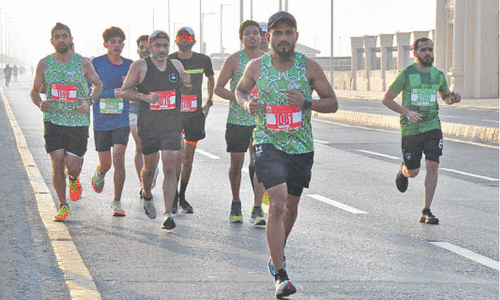PORT-OF-SPAIN (Trinidad), April 8: Ian Bishop believes there is still much work to be done before West Indies can regain some of their lost prestige, but he likes what he sees coming from the Caribbean side in recent matches.
The former West Indies fast bowler was part of the television commentary team that covered the two-Test series between Chris Gayle’s side and Mahela Jayawardene’s Sri Lanka which ended tied 1-1.
West Indies, chasing 253 for victory, completed a six-wicket victory in the second and final Test at Queen’s Park Oval to level the series, after Sri Lanka won the opening Test a fortnight ago by 121 runs at the Guyana National Stadium.
Bishop, who played 43 Tests and 84 One-day Internationals between 1989 and 1998, like most Caribbean people, was relieved that the West Indies won and avoided an historic series whitewash.
“I am extremely pleased that the team has won because a win for this team is so rare,” he said.
“As a West Indian, it is the best feeling. It confirms that there is talent in the side that can be competitive with other teams in the world, and the talent can be harnessed if the players are really hungry and thoughtful. But there is still much work to do in the regional game and the team itself.”
Bishop is also delighted that the pitch at the Queen’s Park Oval in the Trinidad capital was prepared with a generous coating of grass for the match.
“I don’t believe that the first Test should have been played in Guyana,” he said. “It should have been played in Barbados or Jamaica, somewhere with pace and bounce because of the relative strengths of both teams. But I know there may be economical, logistical or other reasons for playing it in Guyana.”
The victory meant West Indies ended a losing streak of seven consecutive Test series, and Bishop feels that beating Sri Lanka — a side ranked much higher than West Indies — was important boost to the confidence of the team going forward.“To beat a team ranked above them was great for their self belief and helps to affirm to the team that they are a hugely talented bunch, and that if they somehow get it together on a consistent basis they can now see what is possible, so it should create hunger,” he said.
“But the environment and culture must be created in the Caribbean by the administration to facilitate that culture and work ethic.”
But Bishop, who captured 161 Test wickets at 24.27 apiece, recognises that the team has performed similarly in the past, and outstanding victories like Sunday’s have been followed by a string of defeats.
“That’s why there is so much still to be done,” he said. “The strength in depth is poor. There are not many players in the first-class game in the Caribbean — based on performance — who can come in at a moment’s notice to make a difference to the team because the first-class standard is so poor.
“Therefore, the team is depending primarily on the players who have learnt their game at this level for so long. As an example, we must find out why (Shivnarine) Chanderpaul is so consistent?
“What has driven (Ramnaresh) Sarwan to such consistent and controlled good form? Why is Jerome Taylor the youngest of our fast bowlers, but the best and most consistent? Now is the time to do deep analysis.”
Bishop also thought that Gayle had answered some questions about he wisdom of making him captain.
“I was one of those who agreed that Chris should have continued on as captain after the series in South Africa,” said Bishop, who captured 113 ODI wickets at an average of 26.50.
“He did not really do everything right in the series. I think he doubted himself in Guyana, and dropped down the order for example.
“But on the plus side, he has been able to get players to respond to him and the needs of the situation, and he is getting better tactically, so he should be pleased.”—AFP











































Dear visitor, the comments section is undergoing an overhaul and will return soon.